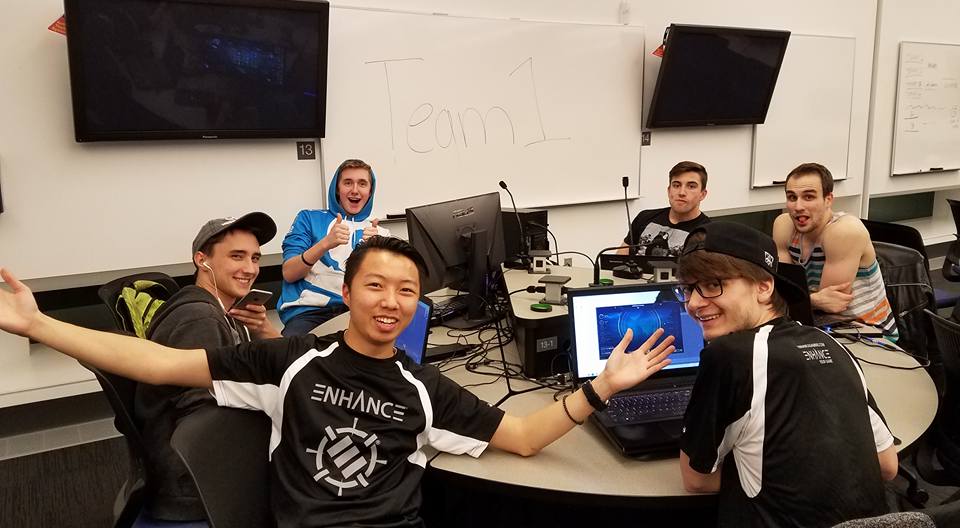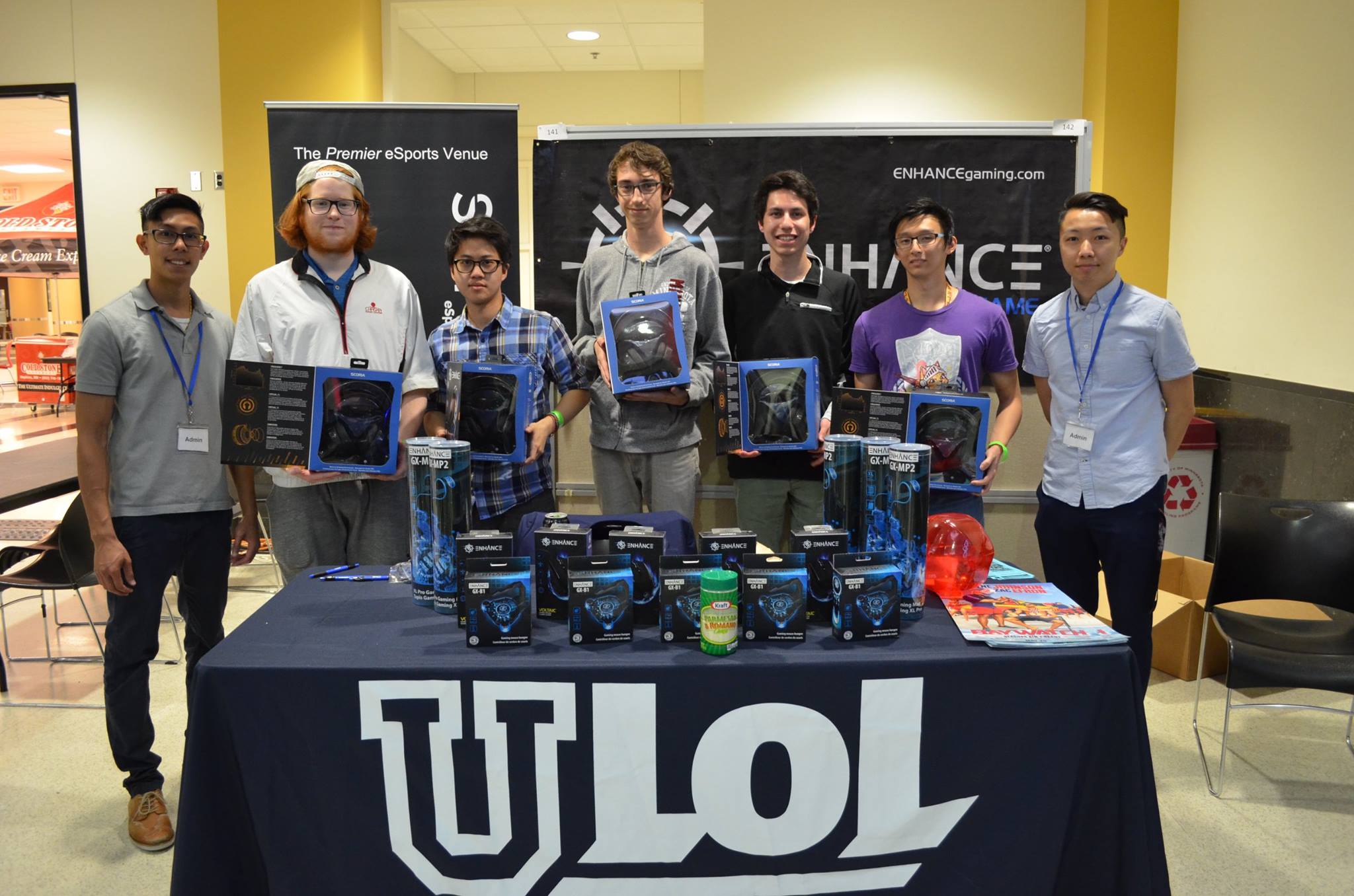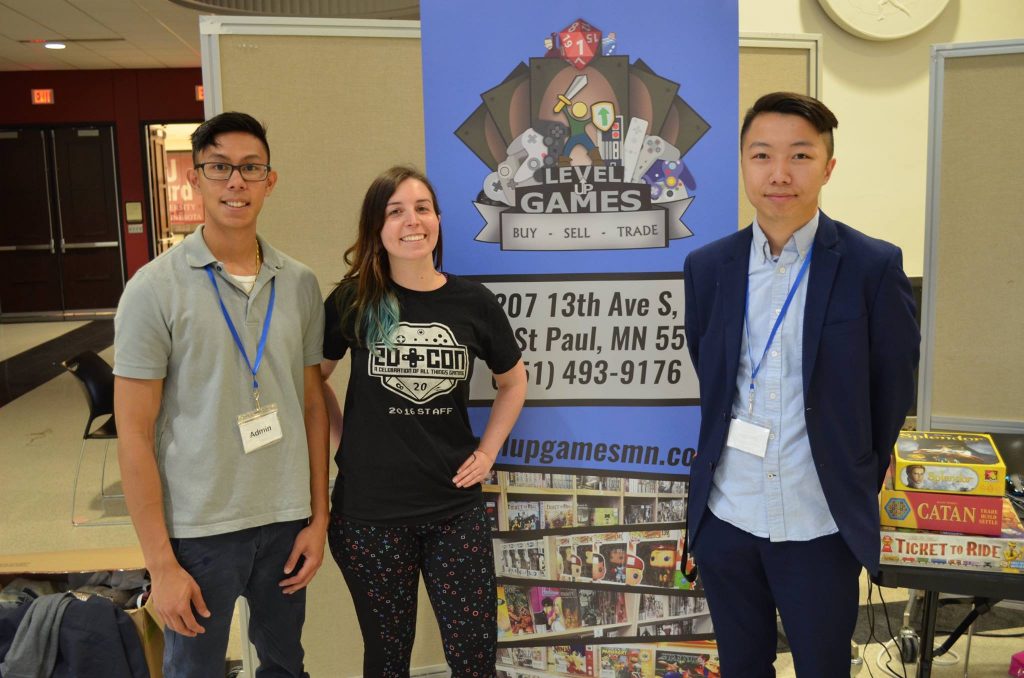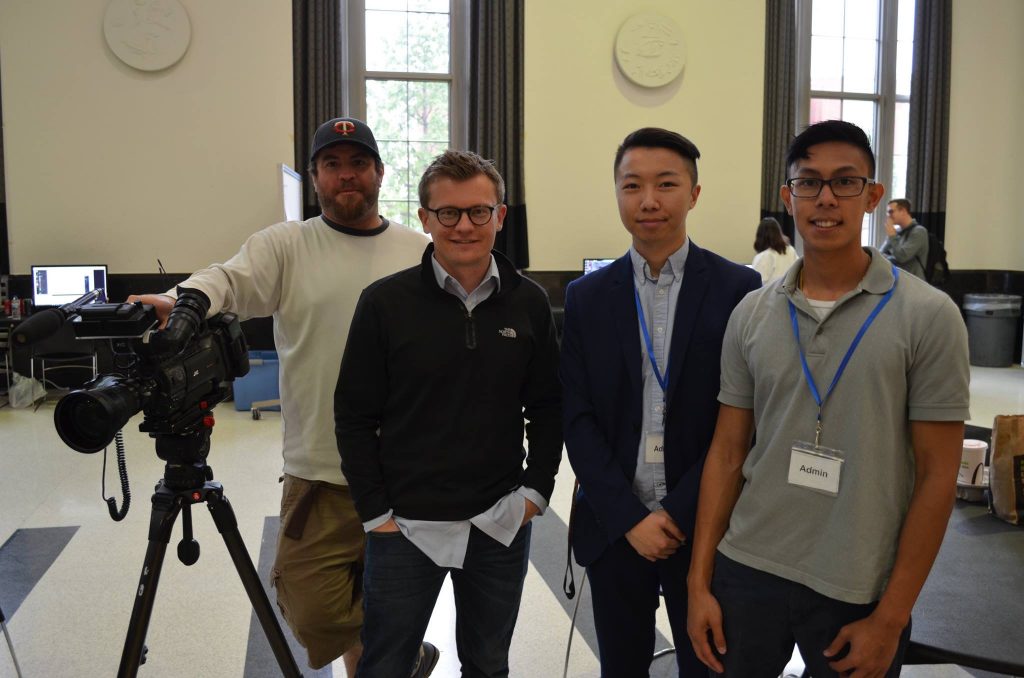The University of Minnesota is part of the Big Ten Conference, an organization that fosters intercollegiate sports, primarily in large state universities. Recently, the U of MN has made local headlines for offering esports scholarships to students — for the small group of players talented enough to land a coveted spot on the school’s League of Legends team, a sizable chunk of their tuition is being taken care of. It’s the perfect time to start learning more about the world of college esports, especially now that scholarships are on the line and students are clearly interested. We sat down with Adam Thao, head of the University League of Legends club.
Interestingly enough, the League of Legends team at the University of Minnesota isn’t actually funded directly by the school, despite competing at national events and organizing intercollegiate tournaments. The first sentence of the club’s about page reads, “The blossoming eSport [sic] community is often deemed as a nontraditional sport and thus receives little or no attention and support.” Things are starting to change in the world of higher education, and student leaders like Adam Thao are helping bring the esports revolution to campuses across America.
Esports Edition: How did you get started with League of Legends?
Adam Thao: I played League since freshman year of high school, right when it first came out. I’ve always enjoyed esports, but the issue in high school was that there was no real club or community where I could talk to people about [League of Legends] in person.
Coming to the University of Minnesota Twin Cities, I was shy. I wasn’t that confident in terms of creating a club of ULOL because honestly, I expected that there would be one already. Going into sophomore year, I always would end up playing League by myself or with my dorm mates, which ended up turning into a small community. Everyone else wanted a bigger [community], so my roommates and I created a League club. I was President and Founder, and roped everyone else into doing it because they occasionally played League.

Esports Edition: What was the club like starting out?
Thao: We created our club and we had our first meeting. I didn’t do any sort of outreach or social media. Despite that, 30 people showed up. They all heard about us just straight on the University’s website. They’ve been looking for us, we haven’t been looking for them. From our 30 people, we kept having weekly meetings, and the same people kept showing up. From there, our League group just continued to grow.
Esports Edition: Tell us about the feeling of walking into that room when 30 people arrived.
Thao: It was crazy. I didn’t expect this club to be so big and when I started it two years ago, I never would have guessed it would still be around now. We really have community. There are students who constantly come, helpful board members, players in our pro and amateur teams, and all of them just help to build the community.
We’re two years in right now and we have over 300 members, we still have weekly meetings, and I also host a big tournament with the UMN Duluth’s esports group, headed by Mitchell Benkufsky. That tournament is MNLCS, just like League’s LCS. We have twelve different teams from twelve different colleges. All those different colleges come together, and they play two games a week. In the end, one team is crowded victorious.
Esports Edition: Do you host tournaments online? Or is there a physical setting?
Thao: Online. We don’t have the funds [for a physical setting]. At least, that’s what we do for MNLCS. For that, we have Twitch streamers, we have producers, we have people shoutcasting it, and people watching. I also host different tournaments like GopherCon, which has been growing in popularity as well. We had 26 teams this year – the first year we had 10. This year, 26 teams played online, then it cut down to 8 teams, and they played live in the Great Hall of Coffman Union[Editor’s Note: UMN Campus Center]. The event went really well and we had a lot of great sponsors show up to support us. Coldstone Creamery, Monster, to name a few. ENHANCE Gaming provided over a $1,000 worth of prizes.
Thankfully, my board members help me set up events. We have monthly meetings where we talk about how we’re going to host our event and what challenges might be involved. Budgeting is big – renting [the Great Hall] alone for seven hours is approximately $900.
Esports Edition: You’ve mentioned finances a couple times, as well as sponsors. Can you tell us about the process of finding sponsors?
Thao: In the beginning, we didn’t have people reaching out to us. But after the first year, we’ve had groups reach out to us, like ENHANCE Gaming. They send us mice, headsets, keyboards, and all that stuff. They sponsor our tournaments as well, which is a huge plus for a little organization like us at the U. We’ve also had different clothing brands like Invade Gaming, they gave us a bunch of gaming wear, wristbands, and lanyards for the tournaments. Riot Games also always sends us a care package at the beginning of the year. We get a lot of funding, not so much from the University itself. I mean, now that the club is over a year old, we could start getting funding from the school, but that process is really long and extensive.

Esports Edition: It sounds like people in the industry are starting to be more directly involved in the scholarship process. Tell us a bit more about that.
Thao: [Scholarships] began last spring for my club. I think it’s a huge success because we had only been active for two years and we were getting scholarships already. The Big Ten network and Michael Sherman (Riot representative), they organized this whole Big Ten team for everyone to play in, and we played online in the play offs. For the final, they fly all of the team members to Vegas to play live on stage. Every player from the Big Ten team gets $5,000 in scholarships per year, but even myself, coaches and management too, they get a $1,500 scholarship.
Esports Edition: Where does the money come from?
Thao: It’s coming from Riot. They partnered with our athletic department, that’s how they were able to pull us in.
You May Like
Esports Edition: Do you think their involvement played a role in getting the support from the administration that you guys have seen?
Thao: I don’t know if there’s was a lot of U support, especially in the beginning. It took them almost two years to reach out to us. However, they reached out to me two months back to grab coffee with the department. They want to give us a new room [near the St. Paul campus], which will be dedicated to League of Legends. They’ve already tested out the gaming gear and specs to run League, and that space is going to be dedicated to basically, scrims, practices, picks and bans for League of Legends.
Esports Edition: Are the members of your club more casually interested as a hobby or looking to pursue esports as a career?
Thao: That’s the thing that I love about League of Legends. You can be a casual player, a pro player, or someone who just takes it really seriously. The thing is that our community doesn’t just have one or two set roles – like in football, you can go pro or become a fan. Everyone here can actually play themselves, even at smaller tournaments. We have a lot of people who are interested in the amateur/pro scene. We have MNLCS where two of my teams play, and they generally place pretty high. Then we have our Big10 network team, which is six people. Our casual players still enjoy coming to meetings every week and playing League together as friends.
Esports Edition: You’ve built a social space for people.
Thao: The whole first year, I really just wanted to make it a social thing where people can come play, but then people really showed an interest in the pro scene. This year, I’m switching the focus to pro, creating a space where students can test our their skills at a high level. We’re not neglecting the community part though, as community is the whole reason why I created the club. Next year, we’re going to have more community weekly meetings, but then bi-weekly meetings where we will have one of my board members will go over League and how to basically play better mechanically, pick and ban, who is good right now in the meta and who’s not, etc.

Esports Edition: What have been some of the biggest challenges that you’ve faced?
Thao: Some of the biggest challenges have been in just keeping the community not toxic, I would say. League can be stressful. Some people really take it seriously and they take it out on others, even in like community settings.
It’s also hard to manage time. I’m balancing school, because I always take 18 credits per semester, and I work part-time, as well. Making those weekly meetings is pretty difficult because I need time to study, personal time, and all that. Having a board is definitely going to help next semester because I might not attend weekly meetings, rather, I’d have a board member be there to monitor it.
Another thing is just funding. When you host a big tournament, you have all these fees. You have to get a building with sustainable ethernet, and that’s a hard thing to do. Computers and desktops are luckily often brought by players themselves. But it would be amazing to have a dedicated space for people to do that rather than hauling their whole $2,000 rig in the rain.
Esports Edition: Do you think that there will be other esports teams and other esports groups that come out of the U?
Thao: I think League right now is the biggest sport. Other games just aren’t as popular. Overwatch is getting there, but you need a higher performance rig for the game, especially if you want to host in-person tournaments, it might not be possible.
Esports Edition: What plans do you have for the future?
Thao: I would love to get a job in esports, but I just feel like it’s not as secure as what I’m currently doing. I’ve just been working with big companies, like 3M and Xcel Energy, and I really enjoy that aspect. But if I could get a job with Riot, or in esports in general, I would love to do that! Esports is not just about competition – it’s also about all the jobs behind the scenes. We have producers, coaches, many other roles – that’s why I really love esports. Without esports I wouldn’t have a scholarship from Riot, or be managing a group of people that I enjoy being around.

Esports Edition: What would you want to do in esports specifically?
Thao: Going to events, seeing how I could improve them, make them better, and especially League events. Right now, I’m a Business and Marketing major and a Human Resource Development major, with minors in Leadership and Communications, so I think it would be perfect for what an esports leader and host or event planner might need.
Esports Edition: Any closing words? Shoutouts?
Thao: Shout out to my mentor Richard Walker for always motivating me through the tough times, and helping me manage an esports club. He always walked me through my difficulties, and help me to break through plateaus of growth and development.
Thanks for speaking with us, Adam!
What do you think? Can collegiate organizations create a feeder system for the professional scene and create career opportunities in esports? Does recognition at big universities hold esports on par with other intercollegiate sports? Tell us what you think on Twitter!
















